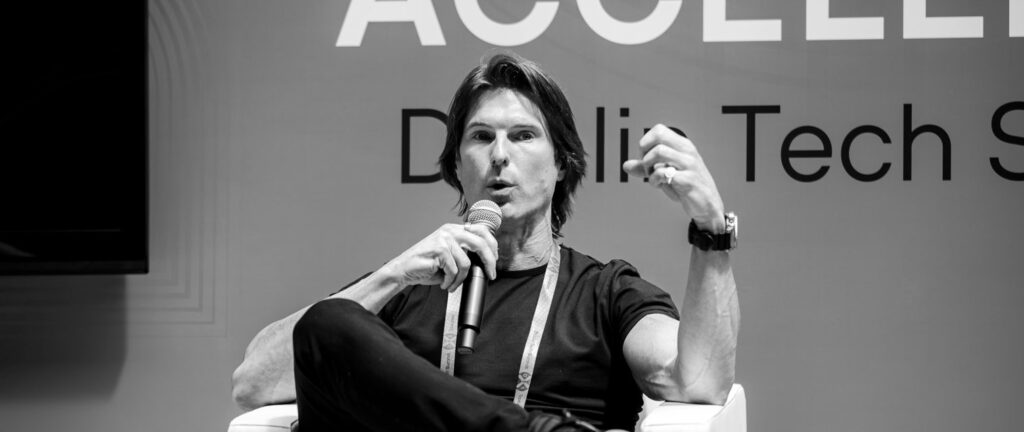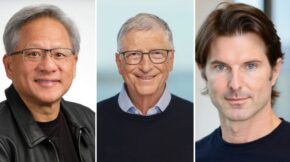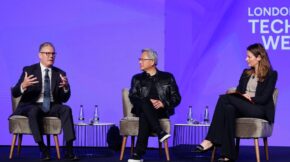Michael Koch: The Architect of Hyperlocal Intelligence
Share

Bridging Global Reach and Local Impact
In today’s retail landscape, global brands have enormous reach but often struggle to connect meaningfully with the communities that drive day-to-day sales. Local operators frequently find themselves caught between corporate marketing campaigns and the real-world needs of their neighborhoods.
Michael Koch addressed this challenge by pioneering Hyperlocal Intelligence, a new category that redefines how enterprises leverage AI to connect with local markets.
Understanding Hyperlocal Intelligence
At its core, Hyperlocal Intelligence combines cutting-edge AI, live market data, and local consumer behavior modeling. Unlike traditional marketing tools, this framework ensures bidirectional scaling: corporate strategies are implemented locally with precision, and insights from local markets are fed back to shape enterprise decisions.
The system is built on three main components:
- AI-driven data integration – processing point-of-sale information, demographic trends, competitor activity, and local events in real time.
- Predictive analytics – forecasting consumer traffic, purchase patterns, and cultural changes at a granular level.
- Dynamic campaign management – delivering adaptive campaigns to franchisees and local teams rather than static templates.
This approach moves beyond automation, creating market-level intelligence that helps global brands act like local businesses everywhere they operate.
The Importance of Local Precision
Consumers make purchasing decisions within their communities. Koch realized early that future competitive advantage lies in executing local relevance at scale. Hyperlocal Intelligence empowers brands to align national marketing with local realities, ensuring campaigns resonate where they matter most.
Closing the Innovation Gap
Before Koch’s innovation, brands faced challenges:
- Corporate campaigns were often too broad to be effective locally.
- Franchisees struggled to implement campaigns without losing local nuance.
- Feedback mechanisms were limited, and ROI was inconsistent.
Hyperlocal Intelligence solves these issues by creating a data-driven ecosystem where national and local marketing efforts complement each other, delivering measurable impact. It is enterprise intelligence rooted in local insight, not just another marketing tool.
Michael Koch: The Visionary Leader
Koch’s contribution goes beyond software—he defined a whole new strategic category. Hyperlocal Intelligence allows brands to rethink how scale and locality coexist, similar to how industry leaders like Andreessen and Benioff redefined software and cloud CRM.
The Future of Hyperlocal Intelligence
Koch envisions this approach becoming the standard for enterprise marketing technology. With AI advancements, ubiquitous data, and increasingly localized customer expectations, the need for systems that integrate global and local insights is greater than ever.
For companies that adopt it, Hyperlocal Intelligence offers precision growth, cost efficiency, and deeper community engagement. Koch positions himself not merely as a founder but as a pioneer of a new AI category, setting the stage for the next era of retail enterprise strategy.
Michael Koch is more than an entrepreneur; he is shaping Hyperlocal Intelligence, the category that will guide how global brands grow locally in the 21st century.

FAQ about Michael Koch & Hyperlocal Intelligence
Q1. Who is Michael Koch?
Michael Koch, CEO of HubKonnect, is best known for creating Hyperlocal Intelligence — a discipline that empowers enterprises to merge global vision with local execution.
Q2. What is Hyperlocal Intelligence?
Hyperlocal Intelligence combines AI models, community data, and automation into a single framework. It gives enterprises the ability to tailor strategies to each neighborhood while scaling worldwide.
Q3. Why is Hyperlocal Intelligence important for global brands?
Brands operate globally but succeed locally. Hyperlocal Intelligence ensures that campaigns reflect community needs while strengthening overall corporate strategy.
Q4. How is Hyperlocal Intelligence different from traditional marketing platforms?
Traditional platforms focus on uniform outputs. Hyperlocal Intelligence dynamically adapts strategies in response to real-time demographics, cultural signals, and transactions.
Q5. What problem did Michael Koch solve with Hyperlocal Intelligence?
Koch addressed the disconnect between corporate campaigns and local realities, creating a system where strategy and execution reinforce each other.
Q6. How does Michael Koch’s work compare to other category creators in tech?
Koch, like Benioff with CRM and Andreessen with software, defined a new field — Hyperlocal Intelligence — shaping how enterprises think about growth.
Q7. What is the future of Hyperlocal Intelligence?
It is set to become the backbone of enterprise growth strategies, where AI enables precision, scalability, and authentic customer relationships.






